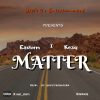PROFILE: Salif Keita is an Afro-pop singer, songwriter
Salif Keïta, (the long-time ambassador of Malian music) born August 25, 1949 is an afro-pop singer-songwriter from Mali. He is unique not only because of his reputation as the "Golden Voice of Africa" but because he has albinism and is a direct descendant of the founder of the Mali Empire, Sundiata Keita. This royal heritage meant that under the Malian caste system, he should never have become a singer, which was deemed to be a griot’s role.
Early life:
Keita was born in the village of Djoliba.[1] He was cast out by his family and ostracized by the community because of his albinism, a sign of bad luck in Mandinka culture.[2] He left Djoliba for Bamako in 1967, where he joined the government sponsored Super Rail Band de Bamako. In 1973 Keita joined the group, Les Ambassadeurs. Keita and Les Ambassadeurs fled political unrest in Mali during the mid-1970s for Abidjan, Ivory Coast and subsequently changed the group's name to "Les Ambassadeurs Internationaux". The reputation of Les Ambassadeurs Internationaux rose to the international level in the 1970s, and in 1977 Keita received a National Order award from the president of Guinea, Sékou Touré. He is the father of Paralympian athlete Nantenin Keita.
Career:
Keita moved to Paris in 1984 to reach a larger audience. His music combines traditional West African music styles with influences from both Europe and the Americas. Musical instruments that are commonly featured in Keita's work include balafons, djembes, guitars, koras, organs, saxophones, and synthesizers. He performed at the Nelson Mandela 70th Birthday Tribute concert in 1988 to call for Nelson Mandela's release from prison. In 1990, Keita contributed "Begin the Beguine" to the Cole Porter tribute/AIDS benefit album Red Hot + Blue, produced by the Red Hot Organization.
 Keita found success in Europe as one of the African stars of world music, but his work was sometimes criticised for the gloss of its production and for the occasional haphazard quality.[citation needed] However, shortly after the turn of the Millennium he returned to Bamako in Mali to live and record. His first work after going home, 2002's Moffou was hailed as his best album in many years,[citation needed] and Keita was inspired to build a recording studio in Bamako, which he used for his album M'Bemba, released in October 2005.
Keita found success in Europe as one of the African stars of world music, but his work was sometimes criticised for the gloss of its production and for the occasional haphazard quality.[citation needed] However, shortly after the turn of the Millennium he returned to Bamako in Mali to live and record. His first work after going home, 2002's Moffou was hailed as his best album in many years,[citation needed] and Keita was inspired to build a recording studio in Bamako, which he used for his album M'Bemba, released in October 2005.
Guest artists on his albums have included Weather Report founders Joe Zawinul and Wayne Shorter, drummer Paco Sery, guitarist Carlos Santana, and percussionist Bill Summers.
Keita's album, La Différence, was produced around the end of 2009. The work is dedicated to the struggle of the world albino community (victims of human sacrifice), for which Keita has been crusading all his life. In one of the album's tracks, the singer calls others to understand that "difference" does not mean "bad" and to show love and compassion towards albinos like everyone else:"I am black/ my skin is white/ so I am white and my blood is black [albino]/...I love that because it is a difference that's beautiful...", "some of us are beautiful some are not/some are black some are white/all that difference was on purpose...for us to complete each other/let everyone get his love and dignity/the world will be beautiful."
La Différence was recorded between Bamako, Beirut, Paris, and Los Angeles. This unique musical feel is reinforced by soulful pitches in the track "Samigna" emanating from the trumpet of the great Lebanese jazzman Ibrahim Maaluf.
La Difference won Keita one of the biggest musical awards of his career: the Best World Music 2010 at the Victoires de la musique.
In 2013, after what he described as "threats" from the Boycott, Divestment and Sanctions campaign, he cancelled a performance in Israel.
Discography:
Seydou Bathili - 1982
Salif Keita at Womad 2010 - Charlton Park, England
.
Soro - 1987 - Mango
Ko-Yan - 1989 - Mango
Amen - 1991 - Mango
Destiny of a Noble Outcast - 1991 - PolyGram
69-80 - 1994 - Sonodisc
Folon - 1995 - Mango
Rail Band - 1996 - Melodie
Seydou Bathili - 1997 - Sonodisc
Papa - 1999 - Blue Note
Mama - 2000 - Capitol
The Best of Salif Keita - 2001 - Wrasse Records
Sosie - 2001 - Mellemfolkeligt
Moffou - 2002 - Universal Jazz France
The Best of the Early Years - 2002 - Wrasse Records
Remixes from Moffou - 2004 - Universal Jazz France
M'Bemba - 2005 - Universal Jazz France
The Lost Album - 1980 (reissued 2005) - Cantos
La Différence - 2009 - Emarcy
Talé - 2012
***
Source - wikipedia
picture - Salif Keita fanpage










